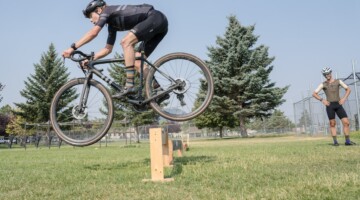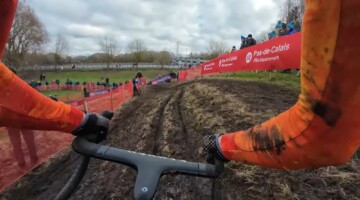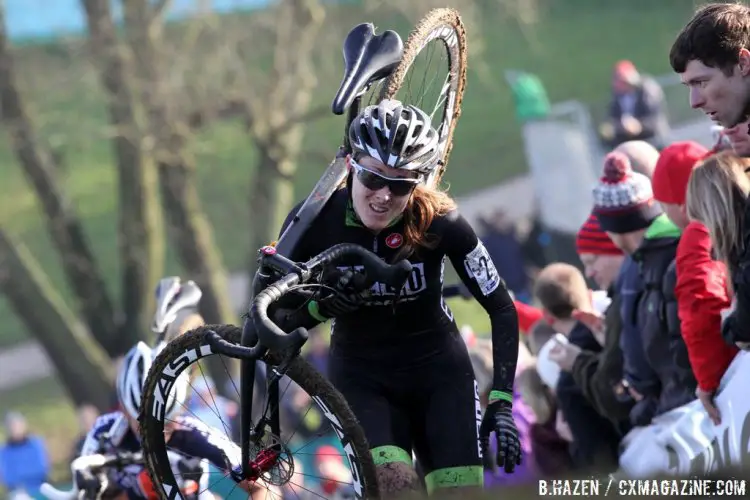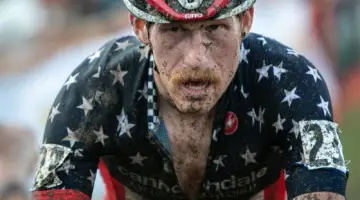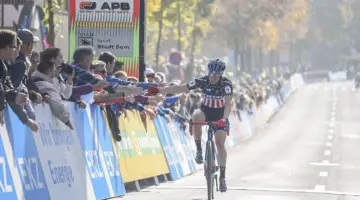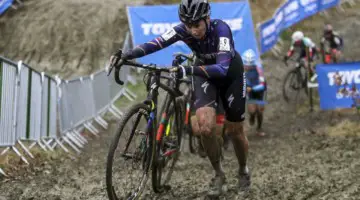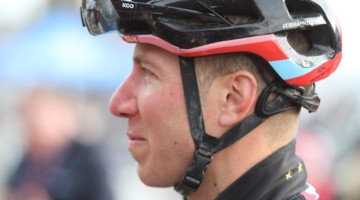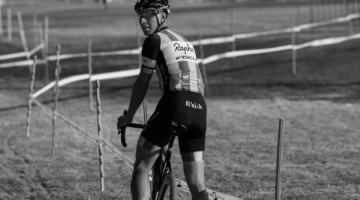AUSTIN, Texas — With this morning’s announcement that Gabby Durrin was retiring from professional racing after 13 seasons, Cyclocross Magazine’s Daniel Curtin sat down with her to talk about about her announcement, the state of the sport and what her future holds. On a cool, but bright day they met at a coffee shop in Austin, Texas, to discuss her decision.
Cyclocross Magazine: This is a big day for you. You have a very personal, intimate statement on your team’s website that shares quite a bit of detail on your decision. One thing that some may wonder is how long have you been considering leaving racing?
Gabby Durrin: Last season I struggled and I realized had to take some time away from racing. It was after Namur that I knew I needed a break because racing wasn’t helping me and I was in this really dark place mentally. I turned down riding at the World Championships because I wanted to focus on getting my mind back in the game for racing. And then in the offseason I worked really hard with a sports psychologist (Kristin Keim) to make sure I was ready to have a really good season this year. I had planned for this one to probably be my last and I hoped to end it in a really positive way.
As it turned out, just getting to the start line in the early season races this year—Vegas, Gloucester—was a big deal. I was still unsure if I was making the right decision. Even when I was on the podium in those early season races it wasn’t a feeling I would have liked it to have been. It was more relief.
So early season this year I was still not sure I had made the right choice to continue.
CXM: Were you physically ready for this season?
GD: Yes, I was physically really ready. I put a lot of work into being ready and trained hard. I think I was stronger than I’d ever been and I thought I was excited for it.
CXM: What about mentally?
GD: I worked really hard on keeping myself mentally together and being right for the season. But if you’re mind is not there it’s hard. Most of your performance is your mind. I would say that’s a really big part of being great at sport—having a really strong mental outlook. When you don’t have that it becomes really tough.
CXM: How did that impact your early season racing?
GD: In some races I’d be there, but my mind wasn’t in it. I was just going through the motions. I wasn’t really able to push myself to the ability that I should have been able to. And that really upset me. As much as I thought I really wanted it, the mind is a really powerful thing. It can control how you race. After Gloucester I just thought, I can’t really do this anymore.
CXM: That’s an incredibly hard place to find yourself.
GD: Yes. It was bringing more of my depression out. Racing wasn’t helping me as a person. I love riding my bike, but coming away from the races upset and down was not how I wanted it to be. Racing wasn’t fulfilling me in the way that it should and it used to [be].
CXM: Do you think there’s a cause or a reason for the feelings you’ve been having?
GD: I can’t explain why I’ve been having these depression issues. I think that for some people it just sneaks up on you. It’s hard to explain why I have these feelings, but I know that racing exacerbates it.
CXM: Did managing your own team and the pressures that come with that side of the sport add to the feelings you’ve been having?
GD: Sure. It was a big thing for [Jeremy and me] to set up. After Rapha-Focus I needed a team and there weren’t a lot of options. Then we got this great opportunity with a London-based sponsor. It was special for [us] to create something and have control over what we were doing.
But at the same time, there was a lot of added pressure. Obviously we were the riders, but we were also the managers, the logistics people and managing the staff and other riders. All of that takes away from just being a bike racer. There’s a lot more to think about. That first season was quite stressful. We’d never done any of that before, and there was a lot of learning. It made it harder for both of us. But it’s still something we remain very proud of.
CXM: The flip side is that success in such a setting must have been that much sweeter.
GD: Yes. When we got really good results it was much more rewarding because it was something you put a lot of your own effort into to creating. But still, it was hard, stressful.

